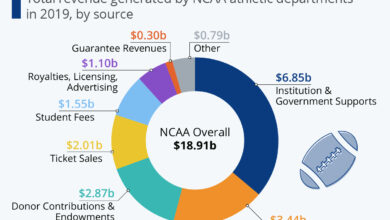Scholarships For Minority Students: Whats Available Now – Explore Opportunities For Underrepresented Students
Starting with Scholarships for Minority Students: What’s Available Now, this overview delves into the various scholarship options tailored for underrepresented students, shedding light on the opportunities awaiting them.
Types of Scholarships
When it comes to scholarships for minority students, there are various types available to support students from diverse backgrounds. These scholarships aim to provide financial assistance and opportunities for educational advancement. Let’s explore the different types of scholarships and their eligibility criteria.
Ethnic-Based Scholarships
Ethnic-based scholarships are designed to support students belonging to specific ethnic groups, such as African American, Hispanic/Latinx, Native American, Asian American, and more. These scholarships often require applicants to demonstrate their cultural heritage and community involvement. Academic achievement and financial need may also be considerations for eligibility.
LGBTQ+ Scholarships
LGBTQ+ scholarships are available for students who identify as lesbian, gay, bisexual, transgender, queer, or other sexual orientations and gender identities. These scholarships aim to support LGBTQ+ students in pursuing their higher education goals. Applicants may need to provide evidence of LGBTQ+ advocacy, academic performance, and financial need.
Scholarships for Students with Disabilities
Scholarships for students with disabilities are specifically tailored to support individuals with physical, mental, or cognitive disabilities. These scholarships may require documentation of the disability, along with academic achievements and community involvement. Financial need is also a common consideration for eligibility.
Application Process
Navigating the scholarship application process can be overwhelming, but with careful planning and preparation, students can increase their chances of securing financial aid for their education. Let’s break down the application process step by step.
Researching Available Scholarships
– Start by researching scholarship opportunities through online databases, college financial aid offices, community organizations, and professional associations.
– Make a list of scholarships that align with your background, interests, and academic goals.
Gathering Necessary Documents
– Collect essential documents such as transcripts, letters of recommendation, personal statements, and financial aid forms.
– Ensure that all documents are up to date and accurately reflect your achievements and qualifications.
Writing Compelling Essays
– Craft well-written essays that highlight your unique experiences, goals, and aspirations.
– Tailor your essays to the specific requirements of each scholarship, showcasing your passion and dedication.
Submitting Applications Before Deadlines
– Keep track of application deadlines and submit all required materials ahead of time.
– Double-check your applications for completeness and accuracy before submission.
Interview Preparation
Preparing for scholarship interviews is essential to make a positive impression and increase your chances of securing financial support for your education. Let’s delve into key strategies for interview preparation.
Researching the Scholarship Organization
– Learn about the mission, values, and goals of the scholarship organization to demonstrate your alignment with their vision.
– Familiarize yourself with past scholarship recipients and success stories.
Practicing Common Interview Questions
– Practice answering common interview questions related to your background, academic achievements, career goals, and community involvement.
– Develop concise yet impactful responses that showcase your strengths and qualifications.
Conveying Passion and Authenticity
– Show passion, dedication, and authenticity during the interview by sharing personal stories of growth and resilience.
– Highlight your future goals and how the scholarship will help you achieve them.
Proper Etiquette and Attire
– Dress professionally and present yourself with confidence during the interview.
– Practice good etiquette, including active listening, maintaining eye contact, and expressing gratitude for the opportunity.
Organizations Offering Scholarships
When it comes to scholarships for minority students, there are several prominent organizations that offer valuable opportunities for financial support and professional development. These organizations play a crucial role in helping minority students achieve their academic and career goals.
Gates Millennium Scholars Program
The Gates Millennium Scholars Program is one of the most well-known scholarship programs for minority students. The application process typically involves submitting academic transcripts, recommendation letters, and essays detailing personal achievements and goals. Eligibility criteria often include being a minority student pursuing a degree in a specific field. Selection criteria focus on academic excellence, leadership potential, and community involvement. Recipients of the Gates Millennium Scholarship have access to mentorship programs, networking events, and internship opportunities.
United Negro College Fund (UNCF)
The United Negro College Fund (UNCF) offers a variety of scholarships to support minority students in their educational pursuits. Applicants are usually required to demonstrate financial need, maintain a certain GPA, and provide letters of recommendation. Selection criteria may include academic performance, leadership qualities, and extracurricular activities. UNCF scholarship recipients benefit from career development workshops, professional networking opportunities, and access to internship placements.
Hispanic Scholarship Fund (HSF)
The Hispanic Scholarship Fund (HSF) is dedicated to supporting Hispanic students in their academic endeavors. The application process typically involves submitting academic transcripts, financial aid information, and personal essays. Eligibility criteria often include being of Hispanic heritage, pursuing a degree in a specific field, and demonstrating financial need. Selection criteria focus on academic achievement, community involvement, and future goals. HSF scholarship recipients have the opportunity to participate in mentorship programs, leadership conferences, and job fairs.
Tips for Standing Out in Scholarship Applications
To increase your chances of receiving a scholarship from these organizations, it’s important to highlight your academic achievements, leadership experience, and community involvement in your application. Be sure to tailor your essays and recommendation letters to showcase your unique qualities and aspirations. Additionally, consider reaching out to current scholarship recipients or alumni for advice on the application process and how to make your application stand out.
Scholarship Application Tips
When applying for scholarships as a minority student, there are several tips you can follow to enhance your chances of success. From highlighting your unique experiences to securing strong letters of recommendation, every step in the application process can make a difference in standing out among other applicants.
Importance of Letters of Recommendation
Securing strong letters of recommendation is crucial in scholarship applications. These letters provide insight into your character, work ethic, and potential for success. Make sure to ask individuals who know you well and can speak to your qualifications and achievements. A well-written letter of recommendation can greatly strengthen your application.
Writing Compelling Personal Statements
Your personal statement is an opportunity to showcase your personality, goals, and experiences to scholarship committees. Be authentic, compelling, and concise in your writing. Highlight your passion for your field of study, your leadership abilities, and any challenges you have overcome. Make sure to tailor your personal statement to each scholarship application to demonstrate your genuine interest and fit for the opportunity.
Financial Aid Resources
When it comes to finding information about financial aid opportunities, minority students can turn to various resources to guide them through the process. Here are some key sources to help you navigate the world of financial aid:
Government Websites
Government websites such as the U.S. Department of Education’s Federal Student Aid portal offer comprehensive information on federal financial aid programs, grants, and student loans available to minority students.
College Financial Aid Offices
College financial aid offices are valuable resources for students seeking information on scholarships, grants, and work-study programs specific to their institution. They can provide guidance on how to apply for financial aid and what options are available.
Nonprofit Organizations
Nonprofit organizations dedicated to supporting minority students often offer valuable resources and information on scholarships, grants, and other financial aid opportunities. These organizations may also provide mentorship and networking opportunities for students.
Online Scholarship Search Engines
Online scholarship search engines like Fastweb, Scholarships.com, and College Board’s Scholarship Search allow students to search for scholarships based on their background, interests, and academic achievements. These platforms can help students identify relevant financial aid opportunities.
Understanding Scholarships, Grants, and Student Loans
It’s essential for minority students to understand the differences between scholarships, grants, and student loans before applying for financial aid. Scholarships are typically merit-based or need-based awards that do not require repayment. Grants are similar to scholarships but are often need-based and can come from federal, state, or institutional sources. Student loans, on the other hand, must be repaid with interest, and it’s crucial to consider the long-term financial implications before taking out loans.
The Importance of Understanding Financial Aid Options
Before applying for scholarships, it’s important for minority students to have a clear understanding of their financial aid options. By knowing the difference between scholarships, grants, and student loans, students can make informed decisions about how to finance their education without accumulating excessive debt. Understanding financial aid options can also help students maximize their chances of receiving funding and reduce financial barriers to higher education.
Scholarships for Specific Minority Groups
When it comes to scholarships, specific programs are available to support minority groups such as African American, Hispanic, LGBTQ+, and others. These scholarships are tailored to address the unique challenges and barriers faced by students from these communities, providing them with opportunities for higher education.
African American Scholarships
- UNCF Scholarships: Offered by the United Negro College Fund, these scholarships support African American students pursuing their college education.
- Thurgood Marshall College Fund Scholarships: Dedicated to supporting students attending public Historically Black Colleges and Universities (HBCUs).
Hispanic Scholarships
- Hispanic Scholarship Fund: Provides scholarships to Latino students who demonstrate academic excellence and leadership potential.
- La Unidad Latina Foundation Scholarships: Aims to empower and support Hispanic students through financial assistance for their education.
LGBTQ+ Scholarships
- Point Foundation Scholarships: Supports LGBTQ+ students who have faced challenges due to their sexual orientation or gender identity.
- PFLAG National Scholarships: Offers scholarships to LGBTQ+ students and allies who are committed to LGBTQ+ equality.
These scholarships have a significant impact on minority students by breaking down financial barriers and increasing access to higher education. Success stories abound of students who have been able to pursue their dreams and achieve academic success thanks to these targeted scholarship opportunities.
Minority students looking to apply for these scholarships should carefully review the specific criteria and eligibility requirements for each program. It’s essential to highlight unique experiences, achievements, and perspectives in the application to stand out among other applicants.
Diversity in scholarship opportunities not only provides support to underrepresented groups but also enriches the educational environment by fostering inclusivity and understanding. By encouraging diversity in scholarship recipients, institutions can create a more equitable and supportive community for all students.
To increase their chances of receiving funding, minority students should seek out scholarship opportunities that align with their background and experiences. By showcasing their individuality and contributions to their communities, students can make a compelling case for why they deserve financial support for their education.
Scholarship Deadlines and Timelines
When it comes to applying for scholarships, keeping track of deadlines and timelines is crucial for success. Setting up a scholarship deadline calendar, managing time effectively, and prioritizing applications can significantly increase the chances of securing financial aid for minority students.
Creating a Scholarship Deadline Calendar
- Start by gathering information on various scholarships available to minority students.
- Use a digital calendar or planner to mark down application deadlines, requirements, and submission dates.
- Organize the calendar by month or deadline to easily visualize upcoming opportunities.
Significance of Setting Reminders and Alerts
- Set up reminders on your phone or computer to notify you of approaching scholarship deadlines.
- Establish email alerts for important dates to ensure you stay on top of application timelines.
- Regularly check your calendar to avoid missing out on valuable scholarship opportunities.
Time Management Techniques
- Allocate specific time slots each week dedicated to working on scholarship applications.
- Break down the application process into smaller tasks to make it more manageable.
- Prioritize deadlines based on the scholarship amount, eligibility criteria, and personal interest.
Sample Timeline for Applying to Scholarships
| Month | Task |
|---|---|
| January | Research and shortlist scholarships |
| February | Start drafting personal statements and essays |
| March | Request letters of recommendation |
| April | Complete and submit scholarship applications |
Comparison Chart for Scholarship Requirements
- Create a spreadsheet comparing scholarship deadlines, eligibility criteria, and application requirements.
- Highlight key differences and similarities among different scholarships to prioritize applications.
- Use the comparison chart to track progress and ensure all necessary documents are submitted on time.
Scholarships for Underrepresented Fields
Encouraging diversity in underrepresented fields like STEM or the arts is crucial for fostering innovation and inclusivity. Scholarships tailored to minority students pursuing degrees in these areas play a significant role in breaking barriers and providing opportunities for underrepresented groups.
STEM Scholarships for Minority Students
Minority students interested in pursuing careers in STEM fields can find numerous scholarships specifically designed to support their academic endeavors. These scholarships not only provide financial assistance but also serve as a recognition of the importance of diversity in STEM.
- The National Society of Black Engineers (NSBE) Scholarships offer financial support to black students pursuing degrees in engineering and related fields.
- The Society of Hispanic Professional Engineers (SHPE) Scholarships provide funding for Hispanic students pursuing STEM degrees.
- The UNCF STEM Scholars Program supports African American students studying science, technology, engineering, and math.
Arts Scholarships for Minority Students
Minority students passionate about the arts can also access scholarships that cater to their creative talents and aspirations. These scholarships not only support students financially but also promote diversity and representation in the arts industry.
- The Jackie Robinson Foundation Scholarship offers support to minority students pursuing degrees in the arts, including visual arts, performing arts, and creative writing.
- The Asian American Arts Alliance Scholarship provides funding for Asian American students pursuing careers in various artistic disciplines.
- The Hispanic Scholarship Fund offers scholarships for Hispanic students interested in pursuing degrees in the arts, including music, theater, and film.
Impact of Scholarships on Minority Communities
Scholarships for minority students play a crucial role in breaking down barriers to education and creating opportunities for individuals who may not have had access otherwise. These scholarships not only provide financial support but also offer encouragement and recognition to students from underrepresented backgrounds.
Empowering Minority Students
One of the significant impacts of scholarships on minority communities is empowering students to pursue higher education without the burden of financial constraints. By alleviating the cost of tuition, books, and other expenses, scholarships allow students to focus on their studies and academic growth.
- Provide access to higher education for students who may not have the financial means to attend college.
- Encourage academic excellence and achievement among minority students.
- Help in creating a more diverse and inclusive academic environment.
Professional Success and Long-Term Effects
Scholarships not only impact minority students during their academic years but also have long-term effects on their professional success and career opportunities. By obtaining a degree without significant financial burden, students are better positioned to pursue advanced degrees and enter high-demand fields.
- Increase the representation of minority professionals in various industries.
- Empower individuals to become leaders in their communities and advocate for change.
- Contribute to the overall economic growth and prosperity of minority communities.
Illustrative Statistics
According to a study by the National Association of Student Financial Aid Administrators, minority students who receive scholarships are more likely to graduate on time and secure high-paying jobs compared to their counterparts without financial assistance. This illustrates the positive impact of scholarships on minority communities in terms of academic achievement and career advancement.
Mentorship Programs Linked to Scholarships
Mentorship programs linked to scholarships for minority students play a crucial role in providing support and guidance to recipients throughout their academic journey. These programs aim to enhance the overall scholarship experience and help students navigate challenges they may face.
Benefits of Mentorship Programs
- Mentorship programs offer personalized guidance and support to scholarship recipients, helping them set academic and career goals.
- Through mentorship, students can receive valuable advice, encouragement, and networking opportunities that can positively impact their educational and professional development.
- Mentors can provide insight into the academic field, share personal experiences, and help students overcome obstacles they encounter during their studies.
Role of Mentorship in Supporting Minority Students
- Mentorship plays a crucial role in supporting minority students by offering them a sense of belonging, motivation, and empowerment to succeed in their academic pursuits.
- By connecting students with mentors who share similar backgrounds or experiences, mentorship programs can help foster a sense of community and understanding among minority students.
- Mentors can provide valuable resources, advice, and encouragement to help minority students overcome barriers and achieve their academic and career goals.
Scholarship Renewal Requirements
Maintaining eligibility for scholarship renewals is crucial for minority students to continue receiving financial support for their education. Failure to meet renewal requirements can have serious implications for scholarship recipients, including the risk of losing funding for future academic endeavors.
Tips for Maintaining Eligibility
- Regularly review scholarship renewal criteria provided by the scholarship provider.
- Stay organized and keep track of deadlines for GPA requirements, community service hours, or other criteria.
- Seek help from academic advisors or mentors if you are struggling to meet renewal requirements.
- Participate in study groups or tutoring sessions to improve academic performance.
Implications of Not Meeting Renewal Requirements
Failure to meet renewal requirements may result in the loss of financial aid, impacting a student’s ability to afford tuition, books, and other educational expenses. It is essential to understand the consequences of falling short of renewal criteria to avoid disruptions in funding.
Appealing a Scholarship Renewal Decision
If a student believes they have valid reasons for not meeting renewal requirements, they can appeal the scholarship renewal decision. The process typically involves submitting a formal appeal letter outlining the circumstances and providing any supporting documentation to support their case.
Tracking Progress Towards Renewal Requirements
Creating a tracking system can help students monitor their progress towards meeting renewal criteria throughout the academic year. This can include setting reminders for deadlines, maintaining a checklist of requirements, and regularly assessing where adjustments may be needed.
Successful Strategies for Scholarship Renewal
- Establishing a study schedule and prioritizing academic responsibilities.
- Participating in extracurricular activities to fulfill community service requirements.
- Seeking additional support from professors or tutors for challenging subjects.
Seeking Support for Meeting Renewal Criteria
Students who are struggling to meet renewal criteria should not hesitate to seek support from resources available on campus, such as academic support centers, counseling services, or scholarship advisors. These resources can provide guidance and assistance to help students overcome obstacles and maintain eligibility for scholarship renewals.
Scholarships for Graduate Studies
When it comes to pursuing graduate studies, minority students often face unique challenges. Fortunately, there are scholarships specifically designed to support their educational goals and career aspirations.
Scholarship Opportunities for Graduate Students
- The Ford Foundation Fellowship Program is one of the most prestigious awards for minority graduate students, providing funding for research-based graduate programs.
- The National GEM Consortium offers fellowships for underrepresented minority students pursuing graduate degrees in STEM fields.
- The Hispanic Scholarship Fund provides scholarships for Hispanic students enrolled in graduate programs across various disciplines.
Impact of Advanced Education Scholarships
Advanced education scholarships can significantly impact career opportunities for minority students by providing financial support, mentorship, and networking opportunities. These scholarships can help break down barriers and create a pathway for success in various fields.
Finding Scholarships for Graduate Programs
- Start by researching scholarship opportunities on dedicated websites like Fastweb, Scholarships.com, and the official websites of organizations supporting minority students.
- Reach out to your school’s financial aid office or academic advisors for information on scholarships tailored to graduate students from minority backgrounds.
- Consider contacting professional organizations, community foundations, and corporate sponsors that offer scholarships for graduate studies.
Challenges Faced by Minority Students in Accessing Scholarships
Minority students often face unique challenges when it comes to accessing scholarships, which can hinder their educational pursuits. These challenges can range from financial barriers to lack of awareness about available opportunities.
Common Challenges Faced by Minority Students
- Financial Constraints: Minority students may come from low-income backgrounds, making it difficult to afford higher education even with scholarships.
- Lack of Information: Some minority students may not be aware of scholarship opportunities due to limited access to resources or guidance.
- Cultural Barriers: Certain scholarships may have criteria or requirements that do not align with the cultural background or experiences of minority students.
Strategies to Overcome Barriers
- Seek Guidance: Reach out to counselors, mentors, or support groups that can provide information and assistance with scholarship applications.
- Research Extensively: Utilize online databases, scholarship search engines, and community resources to find scholarships specifically tailored to minority students.
- Network: Connect with alumni, professionals, or organizations that offer scholarships for minority students to expand your opportunities.
Support Systems for Minority Students
- College Success Programs: Many institutions offer programs that provide academic support, financial aid guidance, and mentorship for minority students.
- Community Organizations: Nonprofits and community groups may offer workshops, seminars, or resources to assist minority students with scholarship applications.
Successful Scholarship Application Stories
For example, Maria, a Latina student, was able to secure multiple scholarships by actively seeking guidance from her school counselor and participating in scholarship workshops. Her perseverance and dedication paid off, allowing her to pursue her dream of attending college.
Step-by-Step Guide to Finding Scholarships for Minority Students
- Start Early: Begin researching scholarship opportunities as soon as possible to maximize your chances of success.
- Utilize Online Resources: Explore websites like Fastweb, Scholarships.com, and the College Board for scholarship listings tailored to minority students.
- Check with Organizations: Reach out to minority-focused organizations, professional associations, and cultural groups for scholarship opportunities in your field of interest.
Scholarship Opportunities Across Different Fields of Study
While some fields may have more scholarships available for minority students, others may have limited options. It’s essential to explore scholarships specific to your chosen field to increase your chances of receiving financial support.
Impact of Cultural Bias on Scholarship Selection
Cultural bias can sometimes influence the selection process for scholarships, leading to disparities in opportunities for minority students. It is crucial for scholarship committees to recognize and address these biases to ensure fair and equitable distribution of resources.
Role of Mentorship Programs in Scholarship Applications
Mentorship programs play a vital role in assisting minority students with scholarship applications by providing guidance, support, and encouragement throughout the process. Mentors can help students navigate complex requirements, refine their applications, and build confidence in pursuing scholarship opportunities.
Scholarships Supporting Community Engagement
Community engagement is a vital aspect of many scholarship programs for minority students, emphasizing the importance of giving back and making a positive impact. These scholarships go beyond academic achievements and look for students who are actively involved in their communities.
Importance of Community Service in Scholarships
- Scholarships that prioritize community service help instill a sense of responsibility and empathy in students, encouraging them to be active participants in creating change.
- By making community engagement a requirement, scholarships ensure that students understand the value of giving back and recognize the impact they can have on society.
- Community-focused scholarships also help students develop essential leadership skills, such as communication, teamwork, and problem-solving.
Success Stories in Community-Focused Scholarships
- One success story is of a minority student who organized a neighborhood clean-up initiative, leading to improved community relations and a safer environment for residents.
- Another student volunteered at a local food bank, helping to feed families in need and raising awareness about food insecurity in their community.
Recognized Community Service Activities
- Participating in environmental clean-up events
- Volunteering at homeless shelters or soup kitchens
- Tutoring and mentoring younger students
Developing Leadership Skills Through Community Engagement
- Engaging in community service activities helps minority students build confidence, enhance their communication skills, and become effective leaders in their communities.
- By taking on leadership roles in service projects, students learn to collaborate with others, delegate tasks, and make informed decisions.
Balance Academic Workload and Community Service
- Effective time management is key to balancing academic responsibilities with community service commitments.
- Creating a schedule and prioritizing tasks can help students allocate time for both their studies and community engagement activities.
- Seeking support from mentors, teachers, or community leaders can provide guidance on how to effectively manage time and responsibilities.
Impact of Scholarships on Diverse Learning Environments
Scholarships for minority students play a crucial role in creating diverse and inclusive learning environments within educational institutions. These scholarships not only provide financial support but also contribute to a more varied student body, fostering a rich tapestry of perspectives and experiences.
Benefits of a Diverse Student Body
- Enhanced learning experiences through exposure to different viewpoints and backgrounds.
- Promotion of critical thinking and creativity by challenging traditional perspectives.
- Fostering a more inclusive and welcoming campus culture for all students.
Initiatives Promoting Diversity and Inclusion
- Specialized scholarship programs targeting underrepresented minorities in specific fields such as STEM or the arts.
- Mentorship programs connecting scholarship recipients with industry professionals from diverse backgrounds.
- Diversity-focused student organizations and clubs supported by scholarships to promote cross-cultural understanding.
Financial Barriers and Diversity
- Scholarships help break down financial barriers that often prevent underrepresented students from pursuing higher education.
- By providing financial aid, scholarships enable a more diverse student population to access educational opportunities.
Need-based vs. Merit-based Scholarships
- Need-based scholarships prioritize students with financial need, ensuring a more equitable distribution of resources.
- Merit-based scholarships recognize academic achievement or talent, contributing to a diverse student body with a range of strengths.
Support Systems for Scholarship Recipients
- Ongoing mentorship and counseling services to help scholarship recipients navigate academic challenges.
- Access to resources such as tutoring programs, career services, and networking opportunities for professional growth.
- Creating a sense of community and belonging through events and initiatives tailored to the needs of scholarship recipients.
Future Trends in Scholarships for Minority Students
As we look ahead to the future of scholarships for minority students, several trends and potential changes can be anticipated. These developments play a crucial role in promoting equity and diversity in education through targeted support for underrepresented groups.
Increased Focus on STEM Fields
- Scholarship programs may increasingly prioritize support for minority students pursuing studies in STEM fields, such as science, technology, engineering, and mathematics.
- With the growing demand for skilled professionals in these areas, scholarships can help bridge the gap and create more opportunities for underrepresented minority groups.
- Organizations and institutions may collaborate to offer specialized scholarships aimed at fostering diversity in STEM education and careers.
Emphasis on Leadership Development
- Future scholarships for minority students could incorporate leadership development components to empower recipients to become future leaders in their respective fields.
- By nurturing leadership skills alongside academic excellence, scholarships can equip students with the tools needed to drive positive change and advocate for diversity and inclusion.
- Mentorship programs linked to scholarships may expand to focus on leadership coaching and networking opportunities for minority students.
Adaptation to Changing Demographics
- Scholarship criteria and focus areas may evolve to reflect the changing demographics of minority student populations, ensuring that support remains relevant and inclusive.
- Efforts to address intersectionality and the unique challenges faced by students belonging to multiple minority groups could shape the design of future scholarship programs.
- Increased awareness of the diverse needs and experiences of minority students may lead to tailored scholarship initiatives that provide holistic support beyond financial assistance.
Outcome Summary
In conclusion, Scholarships for Minority Students: What’s Available Now showcases the vast array of resources and support available to empower minority students in their academic pursuits, paving the way for a more inclusive and diverse educational landscape.









